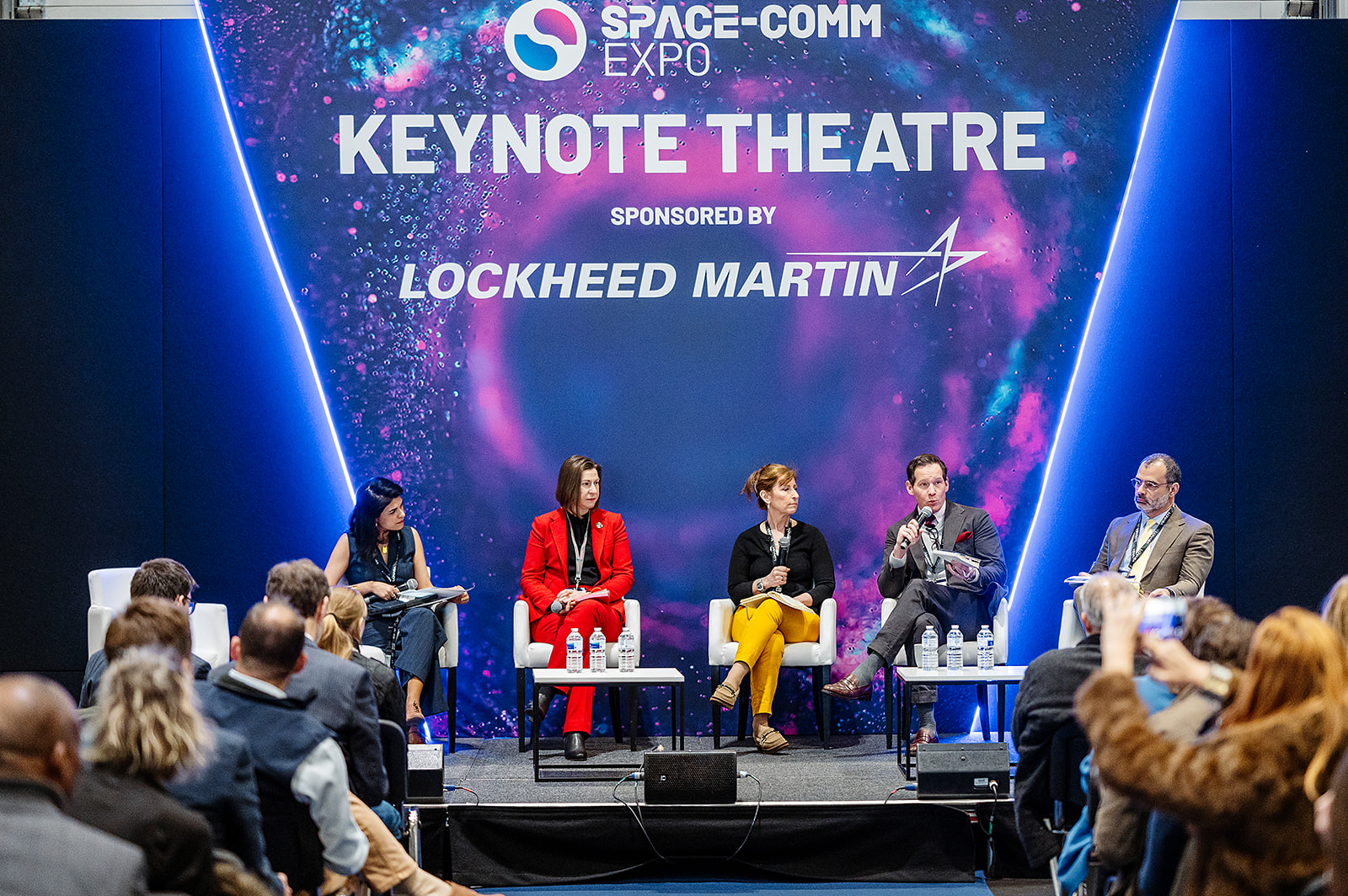UK Space Agency funds new experiments on ISS

Above:
International Space Station.
Copyright ESA/NASA.
The minister unveiled close to £3 million of new funding for the experiments, ahead of the 20th anniversary of the International Space Station (ISS) on Tuesday 20 November.
Due to launch in 2021, two of the experiments will look at age related muscle loss, while a third will look at new techniques for the production of materials and alloys in space with properties that cannot be obtained on Earth.
While age-related muscle wasting has a major impact on the quality of life of older people the causes of the process are not fully understood. The UK’s ageing society is one of four grand challenges identified by the government’s modern Industrial Strategy.

Above:
International Space Station.
Copyright Airbus
Science Minister Sam Gyimah said: "This research will help those with muscle conditions to live longer, healthier, happier lives, and is a great example of our modern Industrial Strategy in action – transforming life on earth through out-of-this-world research."
Spaceflight is an extreme environment that causes many negative health changes to the body and astronauts can lose up to 40% of their muscle after six months in space. These changes are regarded as an excellent model for the ageing process in the body, and scientists can use the knowledge gained from studying changes in astronauts to better understand the ageing human body.
Dr Graham Turnock, Chief Executive of the UK Space Agency, said: "For 20 years the International Space Station has provided a unique laboratory for astronauts to carry out cutting-edge research. As we celebrate all that has been achieved over the last two decades this new funding puts UK academics at the forefront of future pioneering scientific research, allowing us to gain knowledge that will improve life on Earth."
The University of Liverpool received more than £1.1 million to study age-related loss of muscle mass, using muscle cells grown in a laboratory. The cells will be stimulated to contract using electricity on the International Space Station and scientists will examine the changes that occur in them once they return to Earth. They will also test the effects of exposing some of the muscle cells to increased amounts of protective heat shock proteins, which may change the way they respond to the harsh environment of space.
The findings from this study will improve our understanding of the processes that underlie muscle loss in space and in elderly people on Earth and indicate potential therapies to prevent it.
Professor Malcolm Jackson, from the University of Liverpool, said: Ageing is one of the greatest challenges of the 21st century and so the opportunity to use microgravity to help understand the mechanisms underlying age-related muscle loss is really exciting.
"This project combines Liverpool’s research strengths in ageing and chronic disease with the technical expertise of our industrial partner, Kayser Space, to design and construct a state-of-the-art space experiment with real-world impact."
The universities of Nottingham and Exeter will receive almost £450,000 to build on a study into spaceflight-induced muscle loss, which involves an experiment due to launch later this year when hundreds of microscopic worms will be flown to the ISS.
The microscopic worms, known as C. elegans, share many of the essential biological characteristics as humans and are affected by biological changes in space, including alterations to muscle and the ability to use energy.
Professor Nathaniel Szewczyk, from the University of Nottingham, said: "We are excited to be able to carry on with testing causes of and treatments for muscle loss in space, research that may be applicable to muscle loss with disease and age on Earth.
"More importantly, this is an incredible opportunity to demonstrate, with Kayser Space, a fully UK based ability to fly space biology experiments. It will be extremely pleasing to have our international partners looking to the UK for its leadership on this project."
The environment of the ISS, where astronauts and objects float weightlessly, offers a great opportunity to investigate novel materials, life in space, the human body, fluid physics, new technologies and many other things.
The University of Strathclyde will receive almost £1.3 million to investigate how shaking a liquid in microgravity induces solid particles to accumulate and form highly ordered aggregates, instead of causing the floating particles to simply disperse. This surprising phenomenon occurs only if the liquid is heated and shaken at the same time. These experiments will lead to advanced contactless manipulation strategies for the production of new materials and alloys.
Prof Marcello Lappa, University of Strathclyde, said: "These experiments, allowed by the microgravity conditions, the advanced facilities available on board the ISS and specific hardware manufactured in the UK, by QinetiQ, will lead to new advanced techniques and nanotechnologies for the production in space of materials with properties that cannot be obtained on Earth."
The UK is able to support these experiments through the European Space Agency’s European Exploration Enveloped Programme, ensuring UK science benefits directly from human spaceflight.













